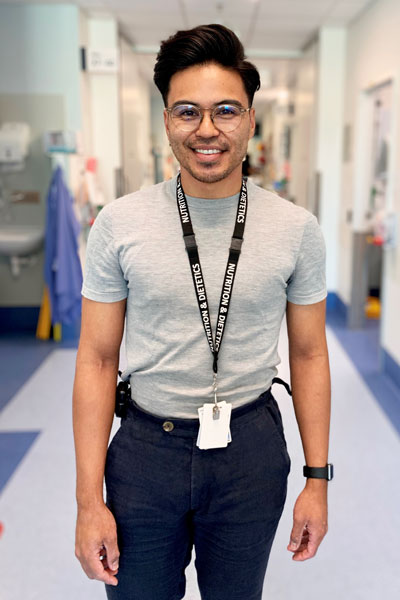
RBWH clinical dietician Dwayne Garcia is passionate about mealtimes!
Malnutrition Awareness Week was held from the 4- 8 October and highlighted the importance of early detection and treatment of malnutrition in hospitalised patients.
RBWH clinical dietician Dwayne Garcia is a passionate advocate for prioritising mealtimes and knows just how important daily meals are to ensure patients get the nutrients they need while they recover in hospital.
“A patient’s wellbeing and hospital stay can be largely affected by their nutritional status,” Dwayne said.
“There are issues from malnutrition that dietitians help to combat daily, all of which can affect the patient’s length of stay in hospitals and impact the healthcare costs.
“Malnutrition is a result of a patient’s decline in nutritional status due to eating less than usual or having difficulty eating, in addition to an increase in metabolic activity resulting from being physically unwell, having surgery, or treatment.
“It can have large negative impacts on the patient’s physical wellbeing, a loss in muscle mass and therefore reduced strength which can increase the risk of hospital complications.”
There are many things hospital staff can do to help combat this issue and reduce a patient’s time in hospital. There is always an opportunity to help increase the awareness surrounding the role of good nutrition in patient recovery.
“All hospital staff can help prevent malnutrition by supporting patients during mealtimes, because they really do matter,” Dwayne said.
“Examples of support can include reducing periods of fasting for procedures and minimising mealtime interruptions.
“Encouraging support from family or friends to assist patients to sit up during meals and provide feeding assistance, or even simply, opening hard to open packages can make a huge difference.
“Personally, I believe mealtimes matter as this is an opportunity for a patient to make a difference in their wellbeing, practice their health autonomy and get them one step closer out of hospital.”